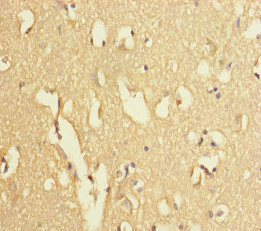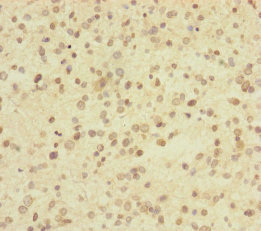Full Product Name
Rabbit anti-Homo sapiens (Human) USP2 Polyclonal antibody
Alternative Names
41 kDa ubiquitin specific protease antibody; 41 kDa ubiquitin-specific protease antibody; Deubiquitinating enzyme 2 antibody; Ubiquitin carboxyl terminal hydrolase 2 antibody; Ubiquitin carboxyl-terminal hydrolase 2 antibody; ubiquitin specific peptidase 2 antibody; Ubiquitin specific processing protease 2 antibody; Ubiquitin specific protease 12 antibody; Ubiquitin specific protease 9 antibody; Ubiquitin specific protease, 41kD antibody; Ubiquitin thioesterase 2 antibody; Ubiquitin thiolesterase 2 antibody; Ubiquitin-specific-processing protease 2 antibody; Ubiquitin-specific-processing protease testis antibody; UBP-t antibody; UBP2_HUMAN antibody; UBP41 antibody; USP2 antibody; USP9 antibody
Immunogen
Recombinant Human Ubiquitin carboxyl-terminal hydrolase 2 protein (200-430AA)
Immunogen Species
Homo sapiens (Human)
Purification Method
Antigen Affinity Purified
Concentration
It differs from different batches. Please contact us to confirm it.
Buffer
PBS with 0.02% sodium azide, 50% glycerol, pH7.3.
Tested Applications
ELISA, IHC
Recommended Dilution
| Application |
Recommended Dilution |
| IHC |
1:20-1:200 |
Storage
Upon receipt, store at -20°C or -80°C. Avoid repeated freeze.
Lead Time
Basically, we can dispatch the products out in 1-3 working days after receiving your orders. Delivery time maybe differs from different purchasing way or location, please kindly consult your local distributors for specific delivery time.
Usage
For Research Use Only. Not for use in diagnostic or therapeutic procedures.







